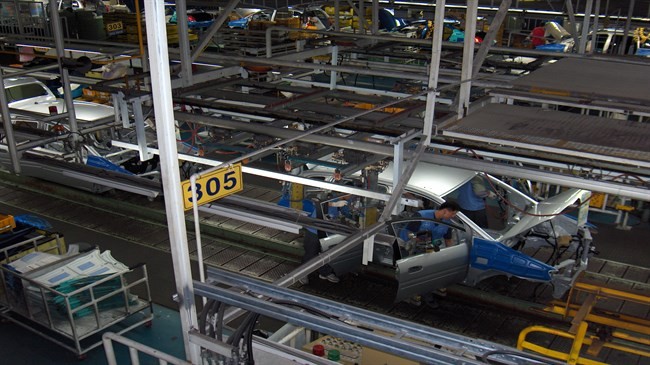S. Korea, Germany eye new business opportunities in Iran

South Korea will provide comprehensive financial support to local companies wanting to enter the Iranian market, the trade and industry minister said Friday.
Seoul joined other countries in lifting sanctions against Iran last month after the landmark nuclear accord reached in July 2015 went into effect, Yonhap reported.
"Government-wide assistance will be offered so businesses can gain access to the resource-rich country," Minister of Trade, Industry and Energy Joo Hyung-hwan said in a meeting with senior executives from Hyundai Motor Co., LG Electronics Inc., Daelim Industrial Co. and other companies planning to do business in Iran.
He said a ministerial-level meeting is planned for Feb. 29, with a high-ranking economic delegation to be sent to the country to open new business ties.
Local companies said that with the lifting of sanctions, Iran's economy could grow 5.8 percent in 2016 and 6.7 percent next year, while access to frozen funds totaling some $100 billion could spur fresh investment in energy infrastructure and social overhead capital projects. This translates into more business opportunities for South Korean companies.
"To promote trade and investment, Seoul is committed to maintaining the current Korean-won based settlement of accounts system while adding other forms of exchange using different foreign currencies," he said. "The euro and Japanese yen can be used in tandem with the won to settle accounts."
Joo also said that actions will be taken to set up a financial support system that can help South Korean companies win orders in Iran. He said a creating a tied loan arrangement is being examined which could foster closer financial cooperation.
The official said that the government will provide information about Iran that can make it easier for local companies to expand into the market.
To expand bilateral trade, South Korean companies should set up joint ventures and reach technical transfer deals in such areas as autos, petrochemicals and steel. Construction and plant building also has growth potential, he stressed.
"If headway is made, South Korean exports, including parts and components, will increase and benefit companies," he said.
The boost will be welcome news for Asia's fourth-largest economy whose exports nosedived 18.5 percent in January.
He added that local companies may also be able to make headway in such areas as consumer electronics and cosmetics.
Exporting 60,000 vehicles to Iran
Korea’s top automakers Hyundai Motor and Kia Motors aim to export 60,000 cars to Iran in 2016, an executive from Hyundai Motor Group said in the meeting.
"The group has increased its sales target by 240 percent from 25,000 cars sold in Iran last year," Hyundai Motor CEO Jeong Jin-hang was quoted as saying by The Korea Herald.
The company’s car exports came to a halt in 2012 after the international community imposed sanctions on the Middle Eastern country.
In addition, the Korean automotive group will expand its Complete Knock Down products for Iran. CKD refers to semi-knockdown products that are assembled in the local markets.
German BASF's $4b-investment
Meanwhile, managing director of National Petrochemical Company (NPC) announced on Friday that Germany's BASF company has expressed its readiness to make a $4 billion investment in Parsian Special Industrial Zone for development of petrochemical industries.
Marzieh Shahdaei also added that 60 percent of the project will be financed by the $4 billion investment by the German company while an Iranian company will provide the remaining 40 percent of the project, Shana reported.
The official went on to say that in the second phase of the project, the German BASF will increase its share of investment.
Two Chinese and German firms are ready to cooperate in construction of an exclusive jetty in the industrial zone, said Managing Director of Iranian Mines & Mining Industries Development & Renovation Organization Mehdi Karbasian.
According to IMIDRO chief, BASF operates six integrated petrochemical sites around the world and plans to establish the seventh site in Iran.
BASF is the largest chemical producer in the world and is headquartered in Ludwigshafen, Germany.